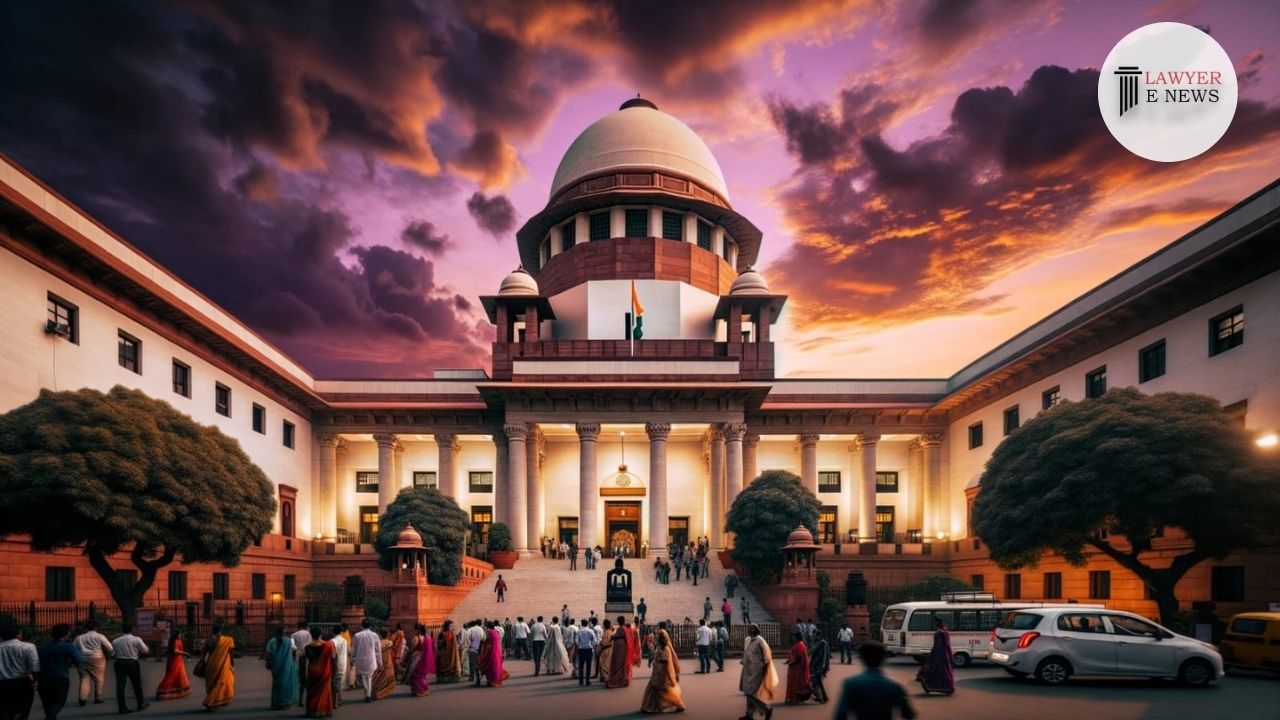-
by sayum
14 February 2026 2:22 PM



The Supreme Court of India, in a landmark judgment delivered on May 16, 2024, has reversed the decision of the Rajasthan High Court concerning a protracted property dispute within a joint Hindu family. The judgment, authored by Justices B.R. Gavai and Sandeep Mehta, clarifies that a widow's pre-existing right to maintenance does not transform into full ownership under Section 14(1) of the Hindu Succession Act, 1956, in the absence of possession. This decision has far-reaching implications for the interpretation of women's property rights under Hindu law.
Background: The case stemmed from a series of legal proceedings initiated by Smt. Nandkanwarbai, the widow of Madho Lal, who had claimed maintenance from the joint family property after her husband's death in 1929. Despite a civil court's acknowledgment of her right to maintenance in 1959, her claim to ownership and possession was dismissed. After her death, her adopted son, Kailash Chand, pursued the claim, seeking partition of the property based on her maintenance rights, which led to a protracted legal battle culminating in this Supreme Court decision.
Right to Maintenance vs. Right to Ownership:
The Supreme Court examined whether the widow's right to maintenance could convert to full ownership under Section 14(1) of the Hindu Succession Act without possession. The court emphasized the necessity of possession for such transformation.
Justice Mehta noted, "Section 14(1) necessitates that a Hindu woman must be possessed of the property and have acquired it through means such as inheritance, partition, or in lieu of maintenance. Mere entitlement to maintenance, without possession, does not suffice to confer absolute ownership." The bench highlighted that Smt. Nandkanwarbai was never in possession of the property, thereby invalidating the claim of her adopted son, Kailash Chand, to ownership based on her maintenance rights.
The court's judgment relied heavily on precedent and statutory interpretation. Referring to the case of Ram Vishal (dead) by LRs. v. Jagannath, the court reiterated that a pre-existing right to maintenance without possession does not fulfill the criteria for full ownership under Section 14(1).
"A mere right of maintenance without actual acquisition of the property is insufficient to invoke Section 14(1). The Hindu female must be in possession and must have acquired the property in a recognized manner," the court stated. This interpretation ensures that possession coupled with a pre-existing right is necessary for ownership claims under the Hindu Succession Act.
Justice Mehta stressed, "The possession of the widow must be under some vestige of a claim, right or title. Section 14(1) does not contemplate possession by any rank trespasser without any right or title." This highlights the need for a substantive right or title alongside possession to claim ownership under Section 14(1).
The Supreme Court’s decision to dismiss Kailash Chand's appeal underscores the judiciary's dedication to a precise interpretation of property succession laws under Hindu law. By affirming that maintenance rights without possession do not confer ownership, the judgment clarifies the scope of Section 14(1) and sets a precedent for future cases. This ruling reinforces the legal prerequisites for converting a widow's limited interest into absolute ownership, ensuring a balanced application of statutory provisions.
Date of Decision: 16th May 2024
Mukatlal vs. Kailash Chand (D) Through LRs. and Ors.
